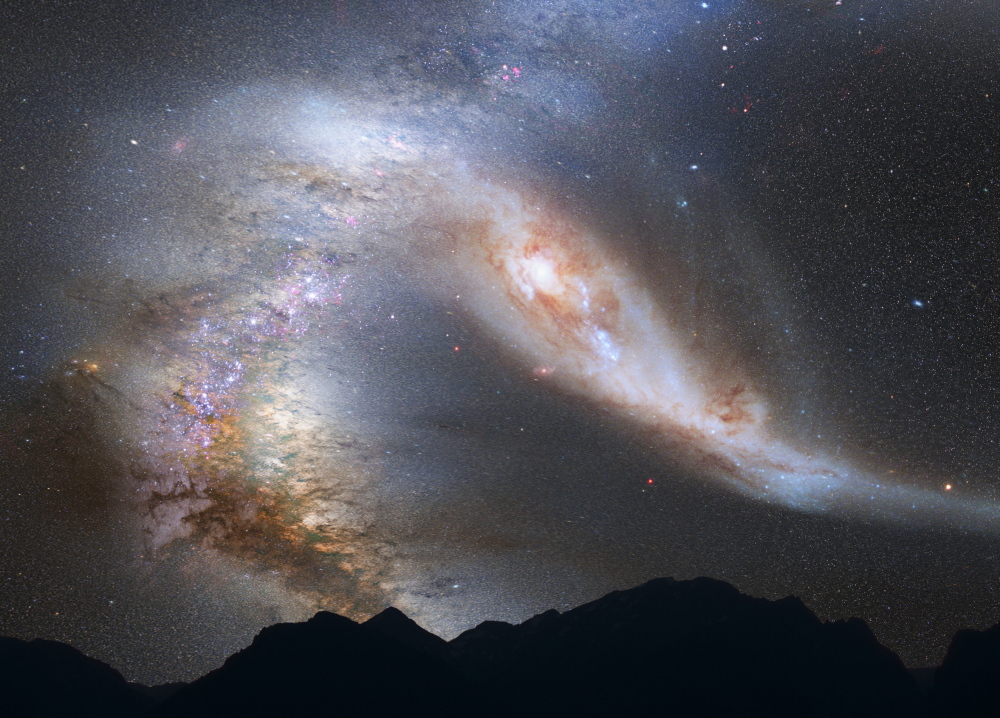Scientists already knew that big galaxies like to chow down on smaller ones – which is just a cute way of saying that when they collide, the larger galaxy gains the mass of the smaller one.
According to a new study published in the Monthly Notices of the Royal Astronomical Society, galaxies turn to cannibalism when they get too big to keep growing on their own.
“All galaxies start off small and grow by collecting gas and quite efficiently turning it into stars,” said Aaron Robotham, a postdoctoral researcher at the International Centre for Radio Astronomy Research and head of the study.
“Then every now and then they get completely cannibalized by some larger galaxy,” Robotham said.
As galaxies grow, they get worse at making new stars – but they also have stronger gravity, which helps them pull neighbors into the fold.
The Milky Way reached this tipping point “recently,” in cosmic terms (read: not at all recently) and will now grow mostly by snacking on the little guys. It’s been a while since our neighborhood ate another one, but astronomers can still see the signs of former galaxies that we’ve digested.
But the Milky Way isn’t going to be able to outrun Andromeda. In about 5 billion years we’ll collide with the nearby galaxy, which contains at least twice as many stars as our own. To Andromeda, we’ll be nothing but a cosmic candy bar.
These cannibalistic mergers will continue until the whole universe is made up of just a few gigantic galaxies, but that’s a long way off – a destiny we won’t reach until the universe is many times older than it is today.
Send questions/comments to the editors.



Success. Please wait for the page to reload. If the page does not reload within 5 seconds, please refresh the page.
Enter your email and password to access comments.
Hi, to comment on stories you must . This profile is in addition to your subscription and website login.
Already have a commenting profile? .
Invalid username/password.
Please check your email to confirm and complete your registration.
Only subscribers are eligible to post comments. Please subscribe or login first for digital access. Here’s why.
Use the form below to reset your password. When you've submitted your account email, we will send an email with a reset code.